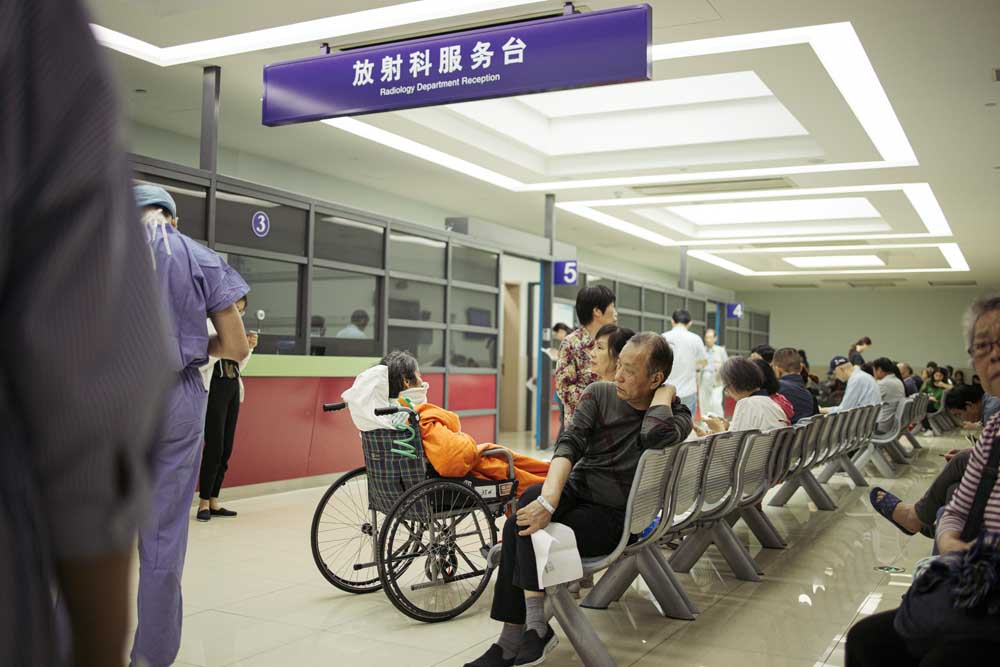Bribes help foreign sales to China’s hospitals
Published 12:00 am Sunday, June 16, 2019

- Patients wait in a lobby at the Zhongshan Hospital in Shanghai on June 5. GE, Siemens and others have prospered in a country where corruption pervades the market for medical equipment, a New York Times investigation found. China’s 1.4 billion people pay the price. (Yuyang Liu/The New York Times)
BEIJING — A trip to the sauna. A golf club membership. Luxury watches. Neatly packed bricks of red Chinese bills worth $220,000.
The bribes lined the pockets of health care officials across China.
Their purpose: to get public hospitals to buy millions of dollars’ worth of sophisticated medical equipment made by foreign companies like General Electric, Siemens, Philips and Toshiba.
A review of dozens of Chinese court cases and internal corporate documents as well as interviews with company insiders showed how foreign firms have become deeply enmeshed in the corruption pervading China’s health care industry.
The New York Times reviewed more than a dozen cases in which employees of GE, Philips and Siemens testified to bribing meagerly paid public hospital officials. In many other cases, Western companies signed off on deals involving third-party contractors who paid bribes and sought kickbacks. Sometimes, the companies continued to sign off on deals involving contractors who admitted to bribery in court.
In one case filed in 2016, a hospital administrator named Wu Dagong was offered more than a $1 million by two GE sales representatives to secure the sale of a CT scanner for $4 million. Wu also took a bribe — the $220,000 in bricks of bills packed in a suitcase — from a GE sales contractor, who walked with Wu to his car and left the suitcase in the trunk. Wu was sentenced to 15 years.
Siemens, GE, Philips and others say hospitals often force them to sell through a series of middlemen, where much of the bribery takes place. They said they comply with Chinese and international laws and terminate employees and contractors who they find out are directly involved with wrongdoing.
“We are committed to integrity, compliance and the rule of law in every country in which we do business,” said Tara DiJulio, a GE spokeswoman.
China’s nearly 1.4 billion people ultimately bear the cost of the corruption. Salespeople inflated prices for equipment to fund bribes and kickbacks, the Chinese court documents show. They also refused to undercut one another’s pricing, the documents showed, inflating prices for hospitals by 50% or even more
Meng-Lin Liu, former chief compliance officer for Siemens’ health care unit in China, said device makers were well aware of the bribery. “It’s a conspiracy scheme,” said Liu, who said he was fired for speaking out about corruption in the China subsidiary. He lost a whistleblower retaliation lawsuit in New York against Siemens in 2013.
“Everyone knows. The problem is how to make people speak up. Because everyone lives on this system, no one dares to report others,” Liu said.






